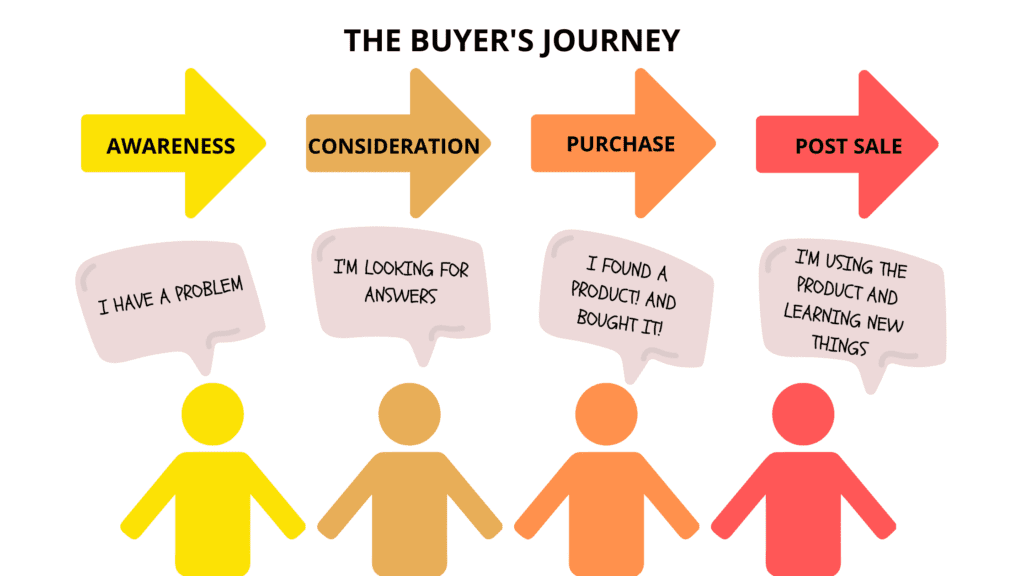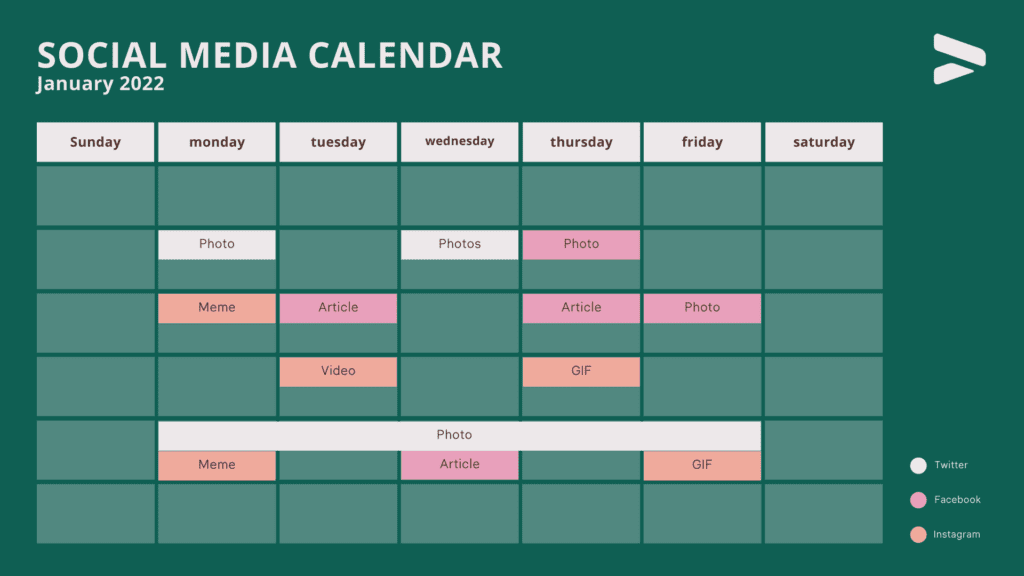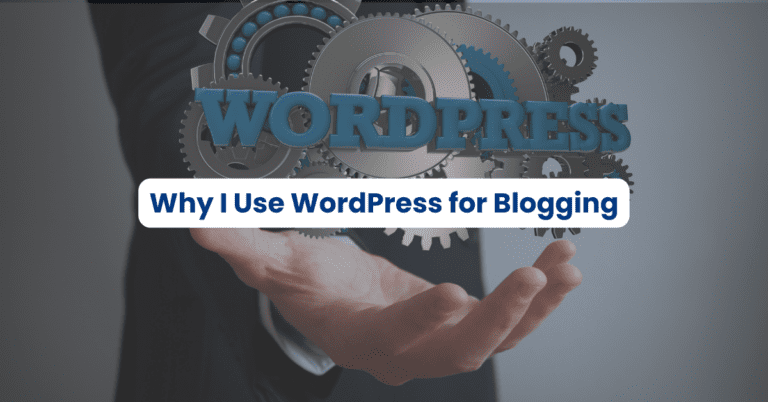You have a brilliant business and product. And you want to win online.
But your online competition is tough and when you look for ways to grow your brand, all you hear is:
‘Content is king.’
So, you create a blog and write several blog posts. You keep posting on social media. But even after several weeks and months of effort, you see little to no growth. Your website isn’t ranking on search engines and you aren’t reaching the right audience.
The problem? You don’t have a content strategy that drives your blog content creation.
Yup. It isn’t enough to produce quality content. You need to do so in a planned way. It’s necessary to have a marketing plan and to focus on the right content ideas.
In this post, you’ll learn about the impact a good strategy makes to reach your marketing goals. And we’ll look at practical ways to produce content in a meaningful way.
Dive in to discover the reasons why you need a content strategy in 2024– and more importantly, how to create one.
15 Reasons why a content strategy is important for your business
The best-performing business blogs in the world are ones that have a clear content marketing strategy.
However, only a small percentage of businesses and individuals take the time to create a plan for their content marketing.
Building your content strategy can mean the difference between success and mediocrity. As the following points will show you, you can’t afford to start writing content without a meaningful plan in place.
Reason #1: A content strategy helps build your buyers’ persona
Who is your target audience? How do you frame your content idea in the market?
These are the top things you should think about when producing content. When you define your ideal reader, you’ll write posts that are relevant to them.
Having a well-defined buyer persona can help immensely with creating blog posts that are useful to the reader.
For example, if you are marketing fitness products for women, one of your buyer personas is an inactive woman who’s interested in health and well-being. She could be 35 years old and a mother who’s busy with work and child care.
In this case, you can focus on pain points like how to cook quick and healthy meals. And come up with content ideas for home-based exercise routines. You can also write about the struggles and rewards moms experience and make your content sound like it’s written for them.
If you created a persona where your audience is a young, single professional, your content ideas will be completely different.


Conducting market research is critical to building a meaningful buyer persona. Using data analytics, CRM tools, and more, you can identify your buyer’s characteristics and why they buy your products.


The more you define your content’s audience, the better you can serve them with the best content strategies.
I cannot stress this tip enough. If you don’t have a buyer persona, your content will look like it’s written for academic homework rather than real people.
Reason #2: A content strategy helps you measure success
Companies with well-defined marketing goals are more likely to be successful than those without them.
Which makes sense. If you don’t know where you’re headed, you won’t know how to get there.
A successful content strategy helps ensure that your marketing efforts are on track for success. It takes into account what you’ve done with your content, why it was a good fit for your target market, and why they loved it.
A strategy also helps determine if your blog is getting the results you want. If you find that certain types of posts get more shares on social media than others, why not keep going in that direction?
Reason #3: Relevant content reduces your marketing costs
If you start writing blog posts without a strategy, you’ll face higher costs later on.
You’ll have to work harder to get your branding and messaging right across all your distribution channels. These include social media posts, website posts, ads, infographics, and sales videos.
It’s hard enough for your content team to develop such content, but if you’re focusing on the wrong goals or the wrong messages, that’s hundreds of hours gone to waste.
So why not start right? Create a documented content strategy that’s simple yet effective at communicating your value proposition. By doing this, you’ll be able to keep the reader focused on why they should choose your product or service over others in your industry.
You’ll avoid having your content look disjointed across various platforms and won’t have to recreate any material.
Reason #4: A content marketing strategy documents your work
If you decide to put your money on a content marketing strategy, why not document the process for reference?
There are several ways that documenting your work will help you.
First, it’s helpful for you since you can learn from past mistakes and successes. You’ll be able to determine why certain articles were good fits with your target audience and why they were not.
Second, if you ever decide to let someone else in your business take over the content marketing efforts, this documentation will make it much easier to train them.
Third, you’ll avoid rewriting and recreating content. And you can plan to repurpose content instead of creating something new from scratch every time.
I don’t know about you. But if a one-time effort to create a content strategy means I’ll save time and money, I’d work hard to set it up.
Reason #5: Creating content strengthens buyer trust
A customer is more likely to buy from someone who’s knowledgeable about their market and who can show why their product is the best choice. And your content production efforts do just this.
Here are a few ways the content development process builds trust:
- When you generate high-quality content regularly, it shows that you’re active and that you care about your work
- A successful content marketing strategy includes collecting reviews. When you encourage more product reviews and display them, your audience will be more likely to buy
- When you create meaningful content in the form of tutorials, ‘how to’ posts, and videos, you offer more value
Content marketing helps you build trust so that your customers come back again and again.
They don’t have to keep searching around for what they need because they know that you can provide it. That means more sales for you over time.
Reason #6: A content strategy optimizes for conversions
When you create a comprehensive strategy with your marketing team, it becomes easier to learn why certain content is performing well. Then, you and your team can increase your website traffic and boost your conversion rate.
Solid content strategies will help leverage the best content marketing practices. You won’t miss a trick and you’ll optimize every piece of content you have for the best effect.
Reason #7: A content strategy helps you reach your goals faster
When businesses don’t have a content strategy in place, they waste time and lose out on potential customers.
But business owners who do set up a content strategy will see positive results much sooner than those without them.
Part of setting up a documented content strategy is identifying your business objectives. And then figuring out how to make valuable content that ties with these goals.
For example, if your goal is to increase sales, you can create blog posts that show how to use your product in innovative ways.
Or if it’s to retain customer loyalty, you can produce content that establishes thought leadership in your industry.
Without content strategy, You’ll have to keep working hard trying to figure out why your content isn’t connecting with your audience. You’ll hop from one approach to another with no clear idea of why it’s not working. And you won’t have the insight needed to improve in the future.
So why not get started right? Create a content strategy that’s effective for your brand.
Reason #8: A Content Strategy Supports Consistency
When you have a clear plan for your content, it shows.
Your blog content gets published regularly. Your social media content matches your recent email marketing campaigns. And your brand voice, graphics, and message are the same on all your platforms.
Your audience will view you as the go-to source for information on new developments and trends within your industry, because of how frequently and consistently you create new content.
This is why businesses like HubSpot have become such trusted sources of info for marketers looking to improve their strategy – even if at first glance what they’re sharing doesn’t look like something directly related to their business.
When brands share their knowledge freely and consistently, it makes them a reliable source of information for consumers.
Reason #9: You create content for every stage of your buyer’s journey
Many businesses make the mistake of building content only to drive sales. This is a classic mistake that’s costing you a lot of money.
No one likes to get pushed to buy. But when you develop and share posts that are purely informational, you capture your customers’ attention.
The key is to pay attention to every stage of your buyer’s journey.
What is the buyer’s journey? A buyer’s journey is the experience people go through that begins when they identify a problem and ends when they buy something to solve their issue. It can even extend to after-sales experiences.
Your content strategy can help you build content for different stages. Here’s how:
Awareness: This is the stage where a person becomes aware of a problem or need. For example, a user wants to improve their health and looks for information on this subject. Here, an organic food company can create social media videos about how to improve one’s health with food and exercise.
Consideration: In this stage, a user looks at different options. They may explore diets, supplements, exercise programs, and different types of food. The organic food company can tie all these potential solutions to their own product by creating recipes, writing about the benefits of organic food, and so on.
Purchase: At some point, a customer will explore buying organic food thanks to the informative posts that the organic food company has made. This is where it becomes important to optimize the sales page.
Post-sale: After purchase, the organic food company can ask for reviews or send newsletters to sell other products. This keeps the customer in touch with the brand and turns them into loyal repeat customers.


When you strategize content for every stage of your buyer’s journey, you plan for the long run. You will have leads and conversions taking place years after you publish a post – that’s the magic of content strategy.
Reason #10: A Content Strategy Saves Money
While you don’t see the impact of your content strategy in the short run, in the long run, you’ll find more and more people coming to your site even years after you publish your posts.
Isn’t that why you’re investing in your content strategy?
Having a roadmap for your content helps you save money by making sure you aren’t repeating yourself. And it also ensures that no two people in your content teams are writing about the same topic on your website.
And most importantly, your content strategy plan can help your posts outperform expensive ad campaigns. While an ad campaign on various channels will give you a short-term boost in conversions, it’s unsustainable in the long run.
But a long-term content plan will lead to more traffic and free organic traffic that keeps paying back for months and years.
Reason #11: You won’t forget important marketing events
A content strategy will ensure that your marketing calendar doesn’t miss any major events during the year.
And it will help you determine what topics to address on your blog so that your content is fresh and provides timely information.
This means that when an important marketing event like Black Friday or Cyber Monday rolls around, your blog is ready with new content.
Your content strategy also helps you keep your blog up to date even when it’s not marketing season. You can recommend blog topics or share new tips to keep your audience engaged.
Reason #12: Your content will be more robust
If you’re having trouble publishing enough content every week, why not set a goal for a content strategy?
You should aim to publish at least five blog posts a month. And you can do it with the help of your content strategy.
Are you looking for ways to make your content stronger? Your content strategy should include keyword research and an editorial calendar across all your social media networks including LinkedIn, Instagram, and Facebook.
Reason #13: Plan to repurpose content for other channels
If you want to make sure all the hard work you put into creating content gets seen, turn it into a video or include visuals.
Videos are especially useful because they keep your audience engaged even if they’re scrolling through their Facebook feed.
You can also create infographics, podcasts, social media stories, and more. In this way, you won’t have to brainstorm content ideas every time. You can plan to turn your blog posts into other usable content.
Reason #14: You’ll never run out of topic ideas
It’s hard enough to write a post for social media or a blog post every week. But you make it even more difficult for yourself and your team if you have to think of new topics at the last minute.
Instead, take some time at the end of the year to create a content strategy. You can brainstorm topics for your blog and social media channels so that your team is ready to publish without much stress.
Reason #15: Your client-facing employees will be happier
When you and several people on your team are creating several pieces of content, it’s easy to lose track of who’s doing what.
It’s likely that your team will get frustrated figuring out what gets published and when.
They’ll also struggle if they have to come up with new post ideas on the spur of the moment.
Part of a good content strategy process is to set up a content calendar. You need to work with the right content marketing tools to do this.
Use spreadsheets, project management tools, or even Google Calendar for free to set up your content calendar.
And invest in a content management system to store and create relevant material. Using a cloud-based platform means that people on your team can view, add, and edit content.
As a result, your writers will always know what to write about and generate content that helps your audience.
These are my top reasons why you should create a content strategy. If you can think of more reasons, add them in a comment.
Reason #16: Content Strategies build on SEO
If you want to rank for a specific keyword to:
- Get more traffic
- Drive sales organically
- Become an authority on a specific topic
Then you need a content strategy that builds on Search Engine Optimization or SEO.
A robust content strategy relies on data from tools like Ahrefs, SurferSEO, Google Keyword Planner, and others to generate keywords and topics.
You’ll build posts, update them, and interlink them to ensure that your content starts to appear on Google search results for specific terms that your customers use.
A good strategy will address user intent, the appropriate content format, content structure, backlink building, and more.
Once your content strategy is up and running, you can automate your SEO and start focusing on driving results.
How to create a content strategy
Now that you see why a content strategy is so important, why not get started on creating one?
Building a content strategy that meets your business goals is a post of its own. But here’s a brief outline of the steps you can follow:
- Identify your buyer personas
- Create meaningful business goals for your content such as email newsletter signs up, click-through rates, and more
- Determine the kind of content buyers need to help meet your goals
- Identify various stages of your buyer’s journey and plan content for each stage
- Create an editorial calendar for your blog posts and social media messages
- Utilize a keyword research tool like Google Trends or an SEO tool to target the right keywords
- Assign blog topics to people on your staff
- Add analytics to your website
- Create metrics to track. Such as the number of posts to publish a month, number of site visits, engagement rates, and more
- Track decaying content and fix or discard them
- Plan updates for older and outdated posts
- Do a content audit every year using content analytics from Google Search Console
- Revisit and revise your content plan to create the best effect
- Hire and train freelancers or writers who can offer you content writing services to meet your goals
This is a basic outline of how to create a content strategy. As you can imagine, this is a challenging task to do, which is why you should hire a content marketing manager to grow your business.
Conclusion
A content strategy is something your business needs to succeed. By setting up a marketing calendar, you publish more blog posts, increase brand awareness, and drive sales.
And in the long run, a content strategy can outperform traditional marketing to save money and generate higher revenues. So, it’s worth hiring a content marketing manager to help you.
Thanks for reading this post. Leave a comment if you’d like to add your own perspective on strategizing content.








